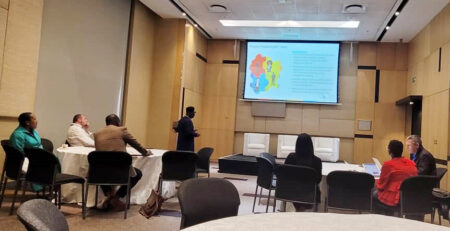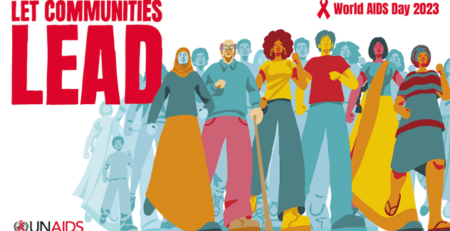Rethinking the Notion: Are We Truly at the Last Mile for the HIV Response?
In the realm of global health, optimism often intersects with rhetoric, and one such prevailing sentiment asserts that we are at the last mile for the HIV response. This assertion, while undoubtedly fueled by significant advancements and progress in the fight against HIV/AIDS, prompts a critical examination of its veracity. Are we truly at the last mile or is this declaration a premature proclamation that might obscure the challenges that lie ahead?
Undeniably, the landscape of HIV/AIDS has undergone substantial transformations over the years. Breakthroughs in antiretroviral therapy (ART) have not only prolonged the lives of those living with HIV but have also significantly reduced the likelihood of transmission. Increased awareness, improved testing, and prevention efforts have contributed to a better understanding of the virus and how to curb its spread. These advancements have undoubtedly brought us closer to the finish line, but does that necessarily mean we have reached the last mile?
The optimism surrounding the last mile narrative risks overshadowing persistent challenges that continue to hamper the effectiveness of our response. Stigma and discrimination, particularly against key populations, remain deeply entrenched in many societies. Access to healthcare, especially in marginalized communities, is still a formidable obstacle. The economic and social determinants of health, such as poverty and gender inequality, continue to fuel the epidemic. Are these not indicative of a journey that extends beyond the metaphorical last mile marker?
Additionally, emerging challenges, such as the impact of the COVID-19 pandemic on HIV services and disruptions in supply chains for essential medicines, serve as stark reminders that the road ahead is not without obstacles. The last mile narrative risks breeding complacency and diverting attention from the sustained efforts required to overcome these hurdles.
One key challenge lies in the persistent disparities in access to resources and healthcare. While some regions have made remarkable strides, others continue to grapple with high infection rates, limited access to treatment, and pervasive stigma. The global nature of the HIV epidemic means that progress in one area does not necessarily translate to success on a broader scale. It is essential to acknowledge and address these regional variations to truly claim progress on a global scale.
Moreover, emerging issues such as drug resistance, evolving transmission patterns, and the impact of social determinants of health underscore the evolving nature of the HIV epidemic. The virus does not remain static, and neither should our response. The ‘last mile’ rhetoric risks overshadowing the need for continued innovation, research, and adaptation to address the dynamic challenges that may arise.
Furthermore, the financial sustainability of HIV programs remains a concern. The long-term commitment required for successful prevention and treatment programs demands consistent funding. The global community must guard against donor fatigue and ensure that financial resources are not diverted prematurely under the assumption that the ‘last mile’ has been reached.
Moreover, the notion of being at the last mile might inadvertently undermine the urgency of ongoing research and innovation. HIV/AIDS is a complex and evolving virus, and as we navigate the final stretch, it is imperative to invest in cutting-edge research to anticipate and address emerging challenges, including vaccine development, and new prevention strategies to expand the options to make choices.
Instead of prematurely declaring victory, we must acknowledge that the last mile is often the most challenging. It demands a collective commitment to addressing the social, economic, and political factors that perpetuate the epidemic. It necessitates a robust response that leaves no one behind, ensuring equitable access to prevention, treatment, and support services. It requires less of a desire for team attribution of successes that creates silos, and an intentional move to a collective response that celebrates development.
In conclusion, while celebrating the strides made in the HIV response, it is crucial to resist the allure of simplistic narratives proclaiming the last mile. The reality is more nuanced, with persistent challenges requiring sustained effort and innovation. Let us be cautious not to undermine the complexity of the journey by prematurely declaring an end that may still be on the horizon.
Morenike Oluwatoyin Folayan
Treasure, Society for AIDS in Africa










Leave a Reply